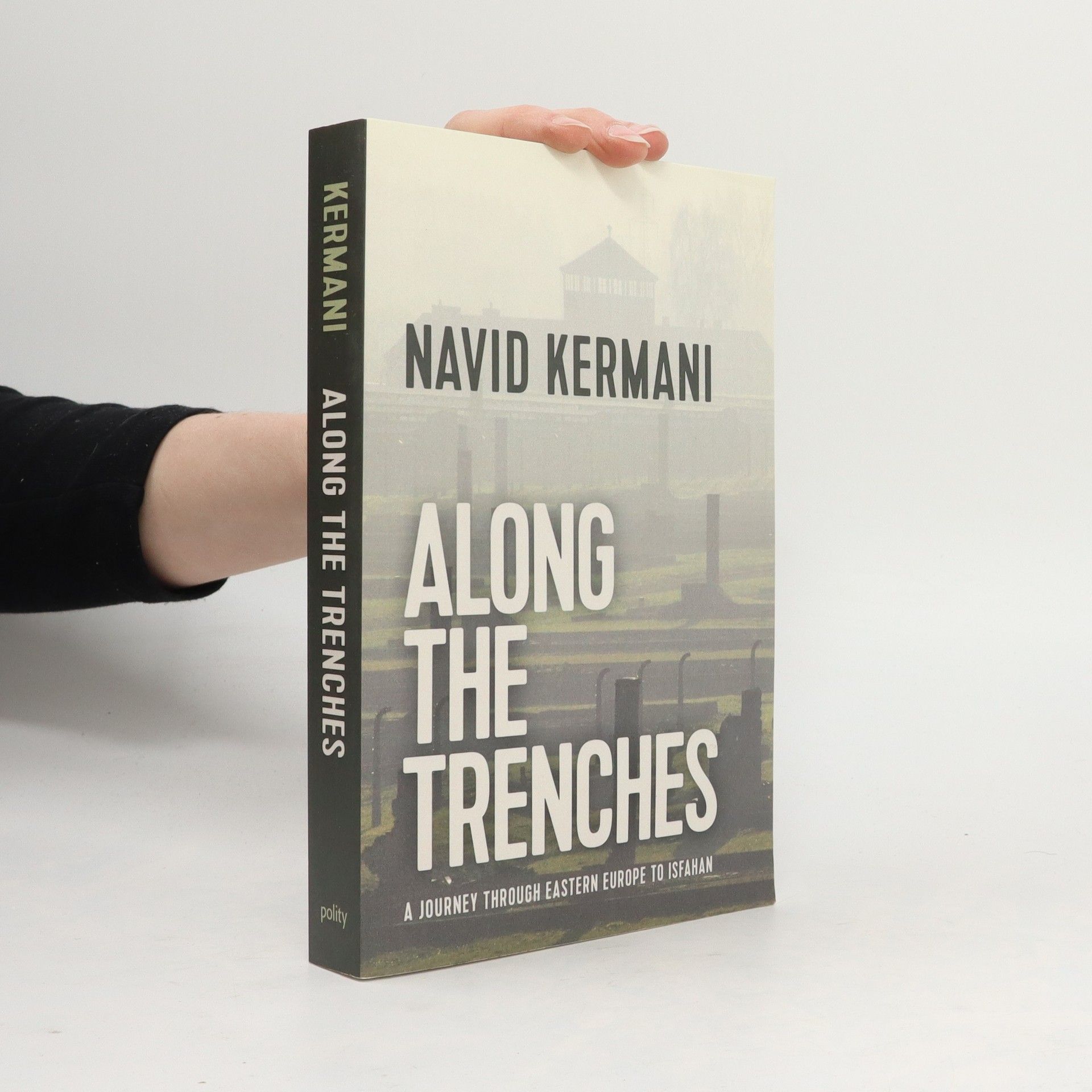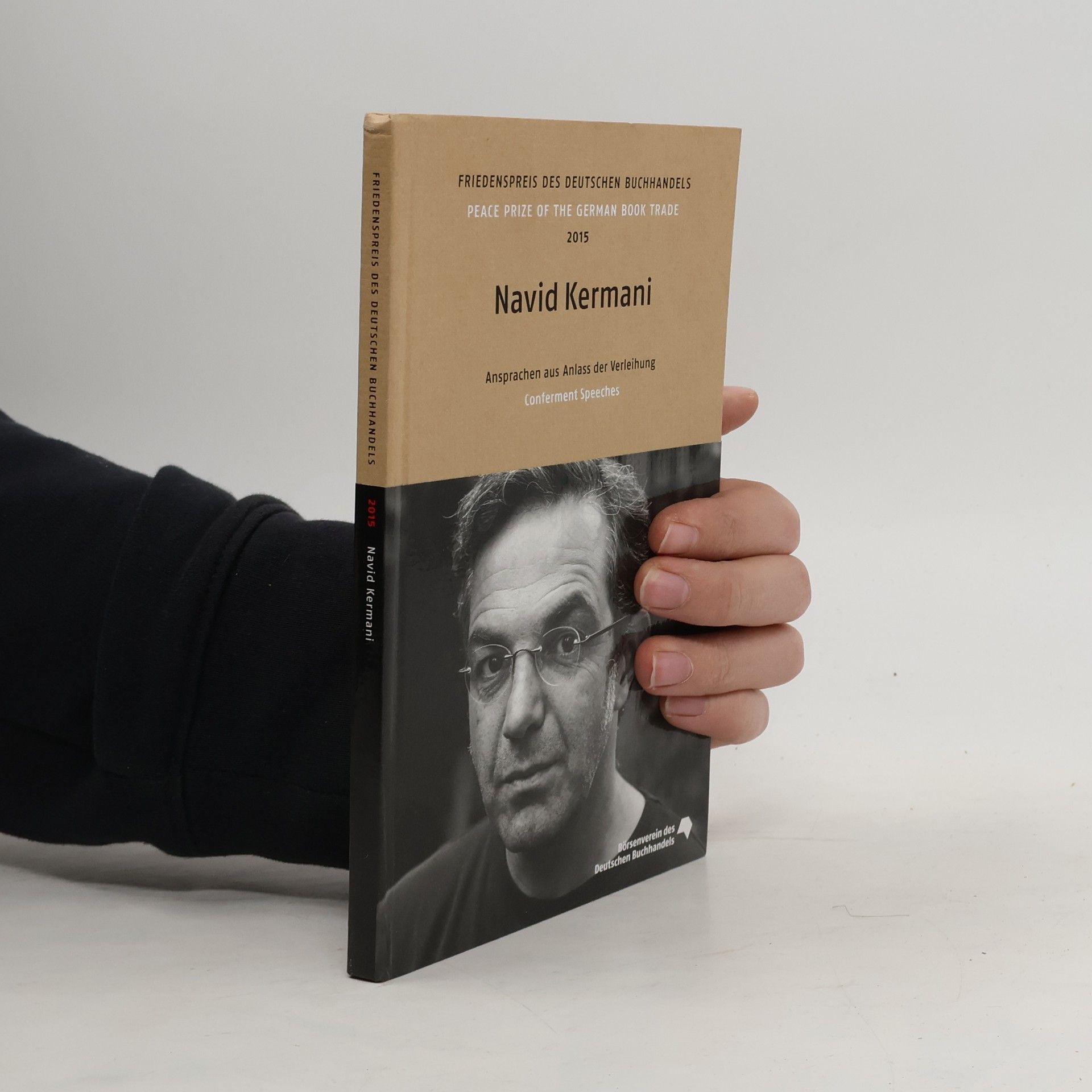Navid Kermani
Friedenspreis des deutschen Buchhandels 2015. Ansprachen aus Anlass der Verleihung






Friedenspreis des deutschen Buchhandels 2015. Ansprachen aus Anlass der Verleihung
Between Germany and Russia is a region strewn with monuments to the horrors of war, genocide and disaster – the bloodlands where the murderous regimes of Hitler and Stalin unleashed the violence that scarred the twentieth century and shaped so much of the world we know today. In September 2016 the German-Iranian writer Navid Kermani set out to discover this land and to travel along the trenches that are now re-emerging in Europe, from his home in Cologne through eastern Germany to the Baltics, and from there south to the Caucasus and to Isfahan in Iran, the home of his parents. This beautifully written travel diary, enlivened by conversations with the people Kermani meets along the way, brings to life the tragic history of these troubled lands and shows how this history leaves its traces in the present. It will be of great interest to anyone concerned with current affairs and with the events that have shaped, and continue to shape, the world in which we live today.
'When your grandpa was in hospital, he asked me one night to promise him that, when he had gone from us, I would teach you Islam - our Islam: the Islam I grew up with... In that dark, impersonal room, he was thinking of you.' This is why one father began to teach his daughter night after night not only about his own religion, but about that which unites all believers, about God and death, about love and the infinity that surrounds us. This highly personal book is not only a magical literary masterpiece, but also a rich resource of knowledge, and this because Navid Kermani dares to venture into the darkness in order to give expression to our confusion. And because his way of talking, his openness, his knowledge which derives from his immersion in two cultures, are so unique, so light and so deep.
A romantic novel like no other. A writer has penned a novel about the great love of his youth. After a public reading, he is approached by a woman he doesn't recognize--but it's his lover. He is the author; she, the figure in his novel. The young girl from back then has turned into an interesting and attractive woman--but she's also married. Soon the situation becomes a little strange: they sit down together, have a glass of wine, talk about French romantic novels, ask each other what one expects of love when one grows older. And all the while her husband is sitting in the next room. How is this going to end? Navid Kermani has written a romantic novel like no other--surprising, witty, profound--and one can barely put it down.
Now in paperback, a story of teenage love in Cold War-era Germany.For a fifteen-year-old, falling in love can eclipse everything else in the world, and make a few short weeks feel like a lifetime of experience. In Love Writ Large , Navid Kermani captures those intense feelings, from the emotional explosion of a first kiss to the staggering loss of a first breakup. As his teenage protagonist is wrapped up in these all-consuming feelings, however, Germany is in the crosshairs of the Cold War—and even the personal dramas of a small-town grammar school are shadowed by the threat of the nuclear arms race. Kermani’s novel manages to capture these social tensions without sacrificing any of the all-consuming passion of first love and, in a unique touch, sets the boy’s struggles within the larger frame of the stories and lives of numerous Arabic and Persian mystics. His becomes a timeless tale that reflects on the multiple ways love, loss, and risk weigh on our everyday lives.
Navid Kermani is one of the outstanding public intellectuals of his generation. Not one for drawing hard and fast conclusions, his style of thought is probing, observant, often straying from well-trodden paths and always peering beyond the present moment to trace connections and grasp the bigger picture. Well known for his prize-winning novels and major works of nonfiction, Kermani has also written for newspapers and magazines ever since he started working at the local desk of a newspaper at the age of 15. Reporting from war zones and crisis hot spots, he gained widespread acclaim as a journalist, displaying a rare political sensitivity which manages to illuminate what politicians fail to see and to seek out solutions where all appears hopeless. This volume brings together his brilliantly perceptive writing from the last thirty years, on topics ranging from terror in the Middle East to crisis in Europe and Russia’s invasion of Ukraine. As a record of Kermani’s uniquely compassionate curiosity, this absorbing book is an antidote to the spectre of confusion and despair that stalks global politics today.
Navid Kermani is not only one of Germany's most distinguished writers and public intellectuals: he is also a brilliant public speaker who mesmerizes audiences with his well-crafted sentences and turns of phrase. Whether he is speaking in St. Paul's Church in Frankfurt on the occasion of receiving the Peace Prize of the German Publishers' Association - Germany's most prestigious literary prize - or delivering a eulogy at his father's graveside, Kermani finds words that surprise his listeners, enlighten them, provoke them, disturb them or move them to tears. As a German of Iranian descent whose parents settled in Germany, Kermani is particularly sensitive to the issues raised by migration and the perceived tensions between Islam and the West. His speeches are a powerful demonstration of how much we stand to gain by adhering to the values of openness, tolerance and mutual respect for the beliefs and practices of those from other cultures who live among us. This volume of Kermani's speeches raises one of the oldest genres of literature - public oratory - to a new level, demonstrating that the prepared speech with its carefully chosen words retains a special power in our fast-moving world of tweets and clickbaits, challenging us to see the world differently and to break away from familiar patterns of thought. -- Provided by publisher
Navid Kermani bereist den Osten Afrikas und beschreibt einfühlsam die Kulturen und Herausforderungen der Region, darunter Klimawandel und Krieg. Er zeigt, wie Bevölkerungen kreativ mit Veränderungen umgehen, insbesondere durch Musik. Sein Buch verbindet literarischen Stil mit aktuellen Themen und regt zum Nachdenken an.
Eine Korrespondenz
Wie spricht man über den Nahostkonflikt? „Was zählt, ist, dass noch debattiert und gestritten wird – Ein Buch der Stunde“ Uli Hufen, WDR 5 Am 7. Oktober 2023 wachte der israelische Soziologe Natan Sznaider in einer anderen Welt auf. Entsetzt und verzweifelt waren unzureichende Worte, um das Massaker der Hamas zu fassen. Aus der Ferne erkannte der Kölner Schriftsteller Navid Kermani den Schrecken wieder, der in den vergangenen zwei Jahrzehnten bereits über so viele Völker im Nahen Osten gekommen war. Die beiden Freunde erinnerten sich eines leidenschaftlichen Mailwechsels, den sie 2002 nach ihrer ersten Begegnung in Haifa geführt hatten. Dasselbe gespenstische Gefühl beschlich sie, weil sich alle Befürchtungen bewahrheitet hatten. 21 Jahre später hilft ihre Korrespondenz die Gegenwart im Nahen Osten zu verstehen.
Ein eindrucksvolles Plädoyer für ein weltoffenes Deutschland und die erste tiefgreifende Auseinandersetzung mit den Morden der Zwickauer Zelle – brillant formuliert von Navid Kermani. Wir Deutschen, so heißt es, müssten endlich wieder ein normales, ein unverkrampftes Verhältnis zur Nation haben. Dass seit der Wiedervereinigung 150 Menschen fremder Herkunft aus „Liebe zum Vaterland“ ermordet wurden, hat Deutschland allenfalls am Rande registriert. Erst die Mordserie der Zwickauer Terrorzelle alarmierte die Öffentlichkeit. Es stellt sich die Frage: Wenn Patriotismus bis heute so oft in Gewalt umschlägt, ist er dann überhaupt eine Tugend? Der Schriftsteller Navid Kermani, einer der wichtigsten Intellektuellen Deutschlands, glaubt das nicht – und beruft sich dabei auf die deutsche Literatur. Vor allem Lessings Absage an den patriotischen Enthusiasmus ist für ihn Vorbild. Kermani liefert eine brillante Analyse des rechtsradikalen Terrorismus und geht der Frage nach, warum sich Deutsche aus der Mitte der Gesellschaft radikalisieren.